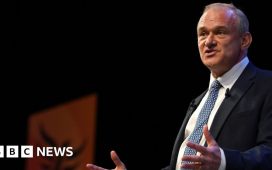Teenager arrested over Transport for London cyber attack
Newsflash: A teenager has been arrested in Walsall by the National Crime Agency, as part of the investigation into a cyber security incident affecting Transport for London (TfL).
The 17-year-old male was detained on suspicion of Computer Misuse Act offences in relation to the attack, which was launched on TfL on 1 September.
The teenager, who was arrested on 5 September, was questioned by NCA officers and has been bailed.
The NCA, which is leading the law enforcement response, says it is working closely with the National Cyber Security Centre and TfL to manage the incident and minimise any risks.
Deputy Director Paul Foster, head of the NCA’s National Cyber Crime Unit, says:
“We have been working at pace to support Transport for London following a cyber attack on their network, and to identify the criminal actors responsible.
“Attacks on public infrastructure such as this can be hugely disruptive and lead to severe consequences for local communities and national systems.
“The swift response by TfL following the incident has enabled us to act quickly, and we are grateful for their continued co-operation with our investigation, which remains ongoing.
“The NCA leads the UK’s response to cybercrime. We work closely with partners to protect the public by ensuring cyber criminals cannot act with impunity, whether that be by bringing them before the courts or through other disruptive and preventative action.”
Last week, TFL was forced to cut some live data feeds serving travel apps such as Citymapper and TfL Go, as it dealt with the cyber-attack.
Key events
Closing post
Time for a recap…
A teenager has been arrested following a cyberattack on London’s public transport body last week in which some personal customer data was accessed.
The 17-year-old male from Walsall was detained last week, and has been released on bail.
TfL said it was contacting about 5,000 customers as a precaution to warn that their email and bank account details could have been accessed. It is understood to relate to those who had applied for refunds on journeys made using Oyster cards.
News of the arrest came as BT reveals it identifies 2,000 signals indicating a potential cyber-attack across its networks every second.
The UK telco says an “AI arms” race is developing between businesses bolstering their defences and increasingly sophisticated hackers.
The European Central Bank has cut interest rates in the eurozone again, but also trimmed its growth forecasts.
Britain’s fiscal watchdog has warned that the national debt could almost triple over the next 50 years, as the rising cost of an aging population and climate change push up borrowing.
John Lewis has declared it is on track for “significantly higher” full-year profits, after narrowing its losses in the first half of the financial year.
The owners of the Grangemouth oil refinery have confirmed it will shut by the end of June next year, in a blow to Scotland’s industrial base and the site’s 500 employees.
Here’s our news story about the latest developments in the TfL hack:
Shashi Verma, TfL’s Chief Technology Officer, has said that TfL did not expect any significant impact to customer journeys from the cyber attack but that some temporary disruption was possible.
Verma added that the transport operator was taking measures to improve security, including an all-staff IT identity check, saying;
“We … are working at pace with our partners to progress the investigation.”
TfL: bank account numbers and sort codes for around 5,000 customers may have been accessed
Transport for London is warning customers that some personal data has been accessed through the hack.
TfL have emailed customers today, saying that they are “currently dealing with an ongoing cyber security incident” which was first detected on 1 September.
TfL says that “the situation is evolving”, and that it has identified that certain customer data has been accessed.
This includes some customer names and contact details, including email addresses and home addresses where provided.
Some Oyster card refund data may have also been accessed. This could include bank account numbers and sort codes for around 5,000 customers, TfL warns.
TfL adds:
If you are affected, we will contact you directly as soon as possible as a precautionary measure, and will offer you support and guidance.
Teenager arrested over Transport for London cyber attack
Newsflash: A teenager has been arrested in Walsall by the National Crime Agency, as part of the investigation into a cyber security incident affecting Transport for London (TfL).
The 17-year-old male was detained on suspicion of Computer Misuse Act offences in relation to the attack, which was launched on TfL on 1 September.
The teenager, who was arrested on 5 September, was questioned by NCA officers and has been bailed.
The NCA, which is leading the law enforcement response, says it is working closely with the National Cyber Security Centre and TfL to manage the incident and minimise any risks.
Deputy Director Paul Foster, head of the NCA’s National Cyber Crime Unit, says:
“We have been working at pace to support Transport for London following a cyber attack on their network, and to identify the criminal actors responsible.
“Attacks on public infrastructure such as this can be hugely disruptive and lead to severe consequences for local communities and national systems.
“The swift response by TfL following the incident has enabled us to act quickly, and we are grateful for their continued co-operation with our investigation, which remains ongoing.
“The NCA leads the UK’s response to cybercrime. We work closely with partners to protect the public by ensuring cyber criminals cannot act with impunity, whether that be by bringing them before the courts or through other disruptive and preventative action.”
Last week, TFL was forced to cut some live data feeds serving travel apps such as Citymapper and TfL Go, as it dealt with the cyber-attack.
Q: What impact will lower interest rates have on the eurozone economy, given that some – if not most – of its problems are structural?
Christine Lagarde cites the new report from Mario Draghi into Europe’s competitiveness, which warns that Europe needs an €800bn EU investment boost and a new industrial strategy.
Lagarde believes the European Central Bank’s job would get easier if the proposals made by her predecessor at the ECB were implemented, saying:
“Mario Draghi’s report includes so many important structural reforms that are going to be the responsibility of governments that will require the leadership of the Commission and the leadership of those leaders in Europe who are determined to strengthen Europe, to give it more sovereignty, to give it more capacity.
“I’m really certain that monetary policy will do what it has to do, which is to provide price stability and to deliver on its mandate, while structural reforms are not the responsibility of a central bank, they are the responsibility of the government.”
Q: You say that rates must remain “sufficiently restrictive for some time”; how many times can the ECB cut interest rates until they are no longer sufficiently restrictive?
Christine Lagarde declines to speculate as to what the neutral rate of interest (known as r* in economic circles) might be.
She argues r* is an unobservable concept – but when the ECB gets close to it, it will have a better feel for it.
Q: Does the ECB welcome the news that Italy’s UniCredit has unveiled a 9% stake in Germany’s Commerzbank?
Christine Lagarde says the ECB doesn’t normally comment on such commercial moves, but also points out that “many authorities” had hoped to see crossborder mergers for some time.
It will be “very interesting” to see how the process unfolds in the weeks to come, she adds.
[This morning, the boss of Unicredit said its investment in Commerzbank has laid the basis for talks over a tie-up with the German lender].
Q: Will you know a lot more, or just a little, by the time of your next meeting in October?
Lagarde says there are just six week’s until October 17th, a “relatively short” period of time compared to previous intervals between meeting.
She reiterates that the ECB will be data-dependent, and is not precommitting to a specific path for rates.
Here are the new, lower, growth forecasts from the ECB today:
Reaching for a glass of water, Lagarde – who has a little cough – jokes “I drink to the future”.
Q&A begins: Lagarde says decision was unanimous
After Christine Lagarde reiterates the key points from her statement, we’re onto questions.
Q: Why did the ECB choose to cut its deposit rate by 25 basis points, rather than 50bp?
Lagarde says the decision to cut by 25 basis points (or a quarter of one percent) was unanimous, after the governing council had analysed the latest data.
That data gives the ECB confidence that inflation is heading towards its 2% target in a timely manner, she says.
[eurozone inflation fell to 2.2% in August].
Extreme weather events and the unfolding climate crisis could drive up food prices, which would be inflationary, Lagarde adds.
The risks to economic growth remain tilted to the downside, ECB chief Christine Lagarde warns.
Lower demand for euro area exports, due to a weaker world economy or an escalation in trade tensions, would weigh on eurozone growth, she points out.
Growth could also be hit if the lagging impact of tighter monetary policy is stronger than expected, she admits.
But on the other hand, if inflation falls faster than expected then growth could be higher.
Lagarde: We are not pre-committing to a particular rate path
Our interest rate decisions will be based on its assessment of the inflation outlook in light of the incoming economic and financial data, the dynamics of underlying inflation and the strength of monetary policy transmission, Lagarde continues.
She declares:
We are not pre-committing to a particular rate path.
We are determined to ensure that inflation returns to our 2% medium-term target in a timely manner, Christine Lagarde tells journalists in Frankfurt, adding:
We will keep policy rates sufficiently restrictive for as long as necessary to achieve this aim.
Lagarde: wages are still rising at an elevated pace
ECB president Christine Lagarde is holding a press conference now to explain why the central bank has cut its benchmark interest rate by a quarter of one percent today.
She’s reading out the statement released half an hour ago, which explained that the ECB believes it is now appropriate to take another step in “moderating the degree of monetary policy restriction,” due to the inflation outlook.
Lagarde explains that the ECB’s headline inflation forecasts are unchanged (as flagged earlier), but adds that projections for core inflation have been revised up slightly.
Lagarde then warns that earnings growth is pushing inflation in the eurozone:
Domestic inflation remains high as wages are still rising at an elevated pace. However, labour cost pressures are moderating, and profits are partially buffering the impact of higher wages on inflation
KPMG: Faltering economic outlook has driven cut to eurozone interest rates
Europe’s “Faltering economic outlook” has spurred the ECB into action by cutting rates today, says Yael Selfin, chief economist at KPMG.
“Today’s decision to cut interest rates comes amidst a sluggish economic backdrop. Growth in the Eurozone has underperformed expectations with activity likely to weaken in the second half of the year. The ECB may have been wary of falling behind the curve, especially as growth in the Eurozone has lagged behind the US, with the Fed looking poised to cut rates next week.
Looking ahead, the path for interest rates remains uncertain, Selfin adds:
While there is widespread consensus on the Governing Council that policy restrictiveness should be eased, divergent views remain around the pace of cuts. We expect a further one in December this year, taking the deposit rate down to 3.25%. If the outlook weakens further, it will strengthen the case of more dovish policymakers to increase the pace of cuts in 2025, towards a terminal rate of around 2.25%.
President Lagarde once again gave little away in today’s statement, choosing instead to maintain flexibility ahead of the October and December meetings. This will allow the Governing Council to take stock of the data in the coming months as it considers its next move.”
Worryingly (although not surprisingly), the European Central Bank has also cut its growth forecasts.
ECB staff now expect the economy will grow by 0.8% in 2024, rising to 1.3% in 2025 and 1.5% in 2026.
This is a slight downward revision compared with the June projections, mainly owing to a weaker contribution from domestic demand over the next few quarters, the ECB says.
ECB staff projections now show a much weaker demand-side of the economy, but that having a muted impact on core inflation. This is interesting, especially as their external factors are largely unchanged. The priority of inflation over growth could leave them playing catch up soon
— Simon Harvey (@_SimonHarvey) September 12, 2024














